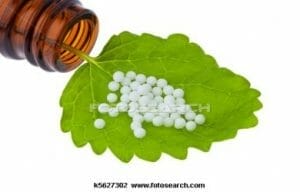
“But persistent homeopathic treatments can reduce health problems to a manageable level. One major advantage is antibiotic and wormer resistance issues do not apply to homeopathy.”
He stresses livestock diseases are usually acute by nature and are therefore fairly straightforward to treat. Homeopathic medicines are chosen on the basis of the body’s reaction to the remedies and a wide spectrum of diseases can be treated.
“Remedies are widely available and can be given via a nasal or facial spray, sprayed into the vulva, placed in the mouth and even injected in the conventional way. There is no set time-scale; treatments can be carried out daily, weekly or monthly. In cases of virulent disease, a remedy might be given every few minutes.”
“Homeopathy has almost fully replaced the need for any conventional drug or hormone treatments on some units. Persistent individual cases can still be treated using antibiotics. But once the obstacles to recovery are removed, there is no reason why homeopathic treatments cannot achieve the same – or even greater – levels of success than antibiotics.
“Since there is no withdrawal period for meat and milk from animals treated homeopathically, production levels are increased. This is especially relevant on organic farms, where withdrawal periods are longer than on conventional units.” [Read more]
